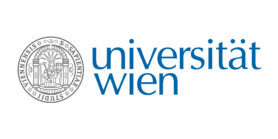Workshop: Ancient and Medieval Homelands
Ancient and early medieval religious homelands
Vienna, 8th, 9th, and 10th November 2021
J. Malpas (Univ. of Tasmania, Australia): Place, Space, and Home(land)
K. Berthelot (Univ. Aix-Marseille, CNRS): Is Judea Homeland? The different models at work in the writings of Philo and Josephus to relate to the Land of Israel
J. C. de Vos (Univ. Münster): The Land in the New Testament
K. Heyden (Univ. Bern): The Holy Land a homeland in early Christianity?
D. Kraemer (Jewish Theological Seminary, New York): Competing Jewish Homelands: Babylon and the Land of Israel in Rabbinic Discourse
R. Kiperwasser (Hebrew Univ.): Mother, Stepmother, and Symbolic Violence: Land of Israel and Babylonia in Rabbinic Traditions
C. Hezser (SOAS): Law and Territory: Why the Land of Israel Matters to Rabbis of Roman Palestine
E. Ben-Eliyahu (Univ. Haifa): The elastic nature of the borders of the Land of Israel in the rabbinic Literature
A. Siquans (Univ. Vienna): Moses’ Land: Evidence of Patristic Literature
C. Cordoni (ÖAW/Univ. Vienna): The future of the homeland: The evidence of late midrash
M. Schreiber (Univ. Vienna): The Samaritan homeland in the Land of Israel
M. Levy-Rubin (The Schechter Institute): The adoption of local holy sites in Palestine in the first centuries of Islam – the case of Samaria
B. Roggema (Univ. Bochum): The land of Filastin and the Jewish diaspora in the eyes of Arab Christians (750–1000)
S. A. Mourad (Smith College, MA) The Muslims’ Holy Land (al-Ard al-Muqaddasa): The Invention of New Memories and Conceptualizations
M. Polliack (Tel Aviv): Historicizing the Land of the Bible in Medieval Karaite Discourse



